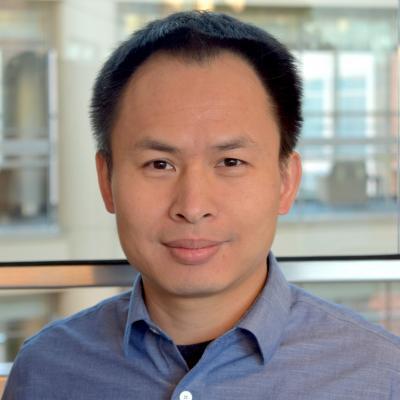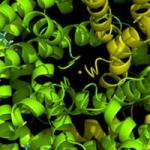
Jiansen Jiang, Ph.D.
Investigator
Laboratory of Membrane Proteins and Structural Biology
NHLBI
Research Topics
The general interests in Dr. Jiang’s laboratory is to elucidate the structures and mechanisms of important membrane proteins associated with membrane transport. Membranes divide cells into compartments that are specialized for different functions; thus it is vital for cells to transport substances across the membranes. Membrane transport, a collection of transport of diverse molecules, is mostly carried out by membrane proteins in a tightly regulated way. Dysfunctions associated with membrane transport may lead to adverse effects or disease. We are particularly interested in two questions concerning membrane transport. (1) How do membrane proteins (channels or transporters) select their substrate molecules or ions? This substrate selection is usually highly specific. Some channels or transporters can select a broad spectrum of substrates, i.e. are poly-specific. (2) How are substrates delivered across the channels or transporters? The mechanisms of permeation and gating of some ion channels have been extensively studied. However, little is known about the mechanisms of transporters and permeation of complex molecules or ions.
We use cryo electron microscopy (cryoEM) as a primary tool to study the structures of membrane proteins. CryoEM has recently become an indispensable approach for structural biology because of its power of solving high-resolution structures of macromolecules without the need of crystallization.
The target membrane proteins we are working on are small, fully embedded in the lipid membrane without a large extramembrane domain, and/or dynamic. These characteristics pose lots of technical challenges on cryoEM study. Most of the membrane protein structures solved by cryoEM up to date have at least a relatively large extramembrane domain that may assist in particle alignment for cryoEM single particle reconstruction. So our another goal is to push the technical limit of cryoEM and demonstrate the feasibility of performing cryoEM studies on small and challenging membrane proteins.
Biography
Jiansen Jiang was a gold medalist of the 9th International Biology Olympiad held in Kiel, Germany in 1998. He received his B.S. in biological sciences from Tsinghua University in 2002 and Ph.D. in biophysics from Tsinghua University in 2009 in the laboratory of Sen-Fang Sui. He was a postdoctoral researcher at University of California, Los Angeles (UCLA) in the laboratory of Z. Hong Zhou from 2009 to 2017, during which time he received postdoctoral fellowships from the National Kidney Foundation serving Southern California and Southern Nevada and from the American Heart Association as well as several postdoctoral research awards from UCLA, including Chancellor’s Award for Postdoctoral Research, Parvin Foundation Award, and Sydney Finegold Award. In 2017, Dr. Jiang joined NHLBI as a Tenure-Track Investigator. Dr. Jiang is a member of the Biophysical Society.
Selected Publications
- Dou T, Lian T, Shu S, He Y, Jiang J. The substrate and inhibitor binding mechanism of polyspecific transporter OAT1 revealed by high-resolution cryo-EM. Nat Struct Mol Biol. 2023;30(11):1794-1805.
- Jiang Y, Jiang J. The Bor1 elevator transport cycle is subject to autoinhibition and activation. Nat Commun. 2024;15(1):9090.
- Diederichs KA, Ni X, Rollauer SE, Botos I, Tan X, King MS, Kunji ERS, Jiang J, Buchanan SK. Structural insight into mitochondrial β-barrel outer membrane protein biogenesis. Nat Commun. 2020;11(1):3290.
- Huang P, Wierbowski BM, Lian T, Chan C, García-Linares S, Jiang J, Salic A. Structural basis for catalyzed assembly of the Sonic hedgehog-Patched1 signaling complex. Dev Cell. 2022;57(5):670-685.e8.
Related Scientific Focus Areas


Molecular Biology and Biochemistry
View additional Principal Investigators in Molecular Biology and Biochemistry
This page was last updated on Tuesday, November 25, 2025